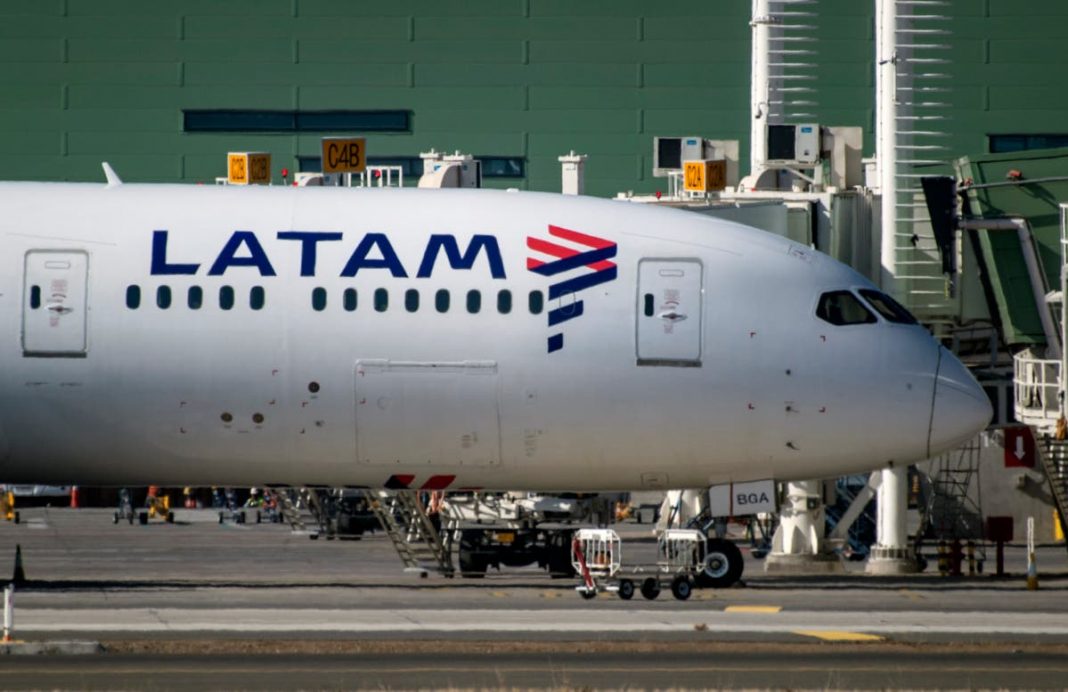In a matter of months, the three leading Latin American airlines filed for Chapter 11 bankruptcies in the US. LATAM Airlines Group, Avianca Holdings, and Grupo Aeroméxico are under restructuring phases, and we can expect significant changes in the companies. How will they look in the future?

They will have smaller fleets
Both LATAM and Avianca have announced their first fleet reductions. In May, Avianca announced that it would get rid of 14 aircraft initially. Avianca’s reduction included two A330-300, two A321, seven A320, two A319, and one Boeing 787-8 Dreamliner. But even previously, Avianca reduced its fleet by retiring ten Embraer E-190, one Airbus A330, and two Airbus A-300F.
Last month, the US Court ruled that LATAM can remove up to 100 aircraft from its fleet. If LATAM goes on with this approval, it will cut ⅓ of its entire fleet, which seems unlikely. At the same time, LATAM is winding down its operations across South America. It closed its Argentinian branch and shut several routes in Chile. So, many aircraft of the carrier will become redundant.
Aeromexico’s CEO, Andres Conesa, recently said, in a video, that it is necessary to adjust the size of the company. In the first quarter of 2020, the company retired four Boeing 737-800 and two Boeing 737-700. Nevertheless, we can expect that the carrier will retire more aircraft from its mainline and the branch Aeromexico Connect.
Let’s remember that Aeromexico has six Boeing 737 MAX grounded in Mexico City plus another eight that it expected to receive in 2019. The carrier will most likely get rid of its reminder B737-700 fleet; Aeromexico had nine at the end of the first quarter of 2020. The 737-700 of the Mexican airline is designed for 124 passengers and has a range of 4,700 kilometers. Meanwhile, the 787-800 have a capacity for 160 passengers and an extended range of 5,000 kilometers.

The route maps will be affected
We’ve also seen that LATAM and Avianca have suspended routes and operations across the continent. Avianca shut its Peru branch. Meanwhile, LATAM ceased the operation of LATAM Argentina after 15 years in the market. LATAM Paraguay also remains on thin ice as it is not part of the Chapter 11 filing.
Before the pandemic, both carriers controlled a combined 60% of the domestic markets in Colombia, Chile, and Peru. But we’ve seen how both airlines have scaled back its operations.
In Mexico, Aeromexico has, officially, canceled only one route. The connection between Mexico City and Panama will not come back (leaving the market wide open for Copa Airlines).
As of June 29, the Mexican carrier had suspended 22 international routes. It is interesting to note that some routes are suspended until September, like the Mexico City-Seattle. Nevertheless, unless other countries like Argentina (closed until August 31), the air connectivity between Mexico and the US is still open. Maybe this route is in jeopardy.
Finally, Aeromexico has suspended seven domestic routes until further notice.

Will other Latin American carriers do Chapter 11?
Latin America is still the fourth epicenter of the coronavirus pandemic. The countries in the region have been pushing back the opening of their airspaces. For instance, Colombia and Argentina will open in September, while Bolivia, Paraguay, and Uruguay are closed until further notice.
The carriers in the region are still burning cash at excessive rates. We will likely see more airlines filing for Chapter 11 bankruptcies or altogether disappearing as it happened with TAME in Ecuador.
René Armas Maes, an airline consultor specialized in the region, said recently to Simple Flying that the two likeliest airlines to go into Chapter 11 are Azul and GOL Linhas Aereas in Brazil.
He said,
“Azul has more international routes than GOL. GOL is better poised than its rival as it only has a 737 fleet and a big presence in the domestic market. Nevertheless, the Boeing 737 MAX crisis has deeply affected GOL, although it recently received compensation for this. In conclusion, at this moment, I see Azul in a tougher position.”
Additionally, he said that Azul and LATAM Brazil might end up in a merger. Recently, both carriers signed a codeshare agreement.
Do you expect to see more Latin American airlines in Chapter 11? Let us know in the comments.
[ad_2]
Source link



